Jersey Cattle: A Global Dairy Powerhouse
Jersey cattle are a versatile and productive breed of dairy cattle that are found around the world. Originating from the Channel Islands, Jerseys have been gaining popularity for their higher-quality milk and excellent feed conversion efficiency. This breed has adapted successfully to different climates and agricultural systems, and its milk commands a premium price in many markets. With strong yet fine frames and black feet, Jerseys are known for their good temperament and little to no calving problems.
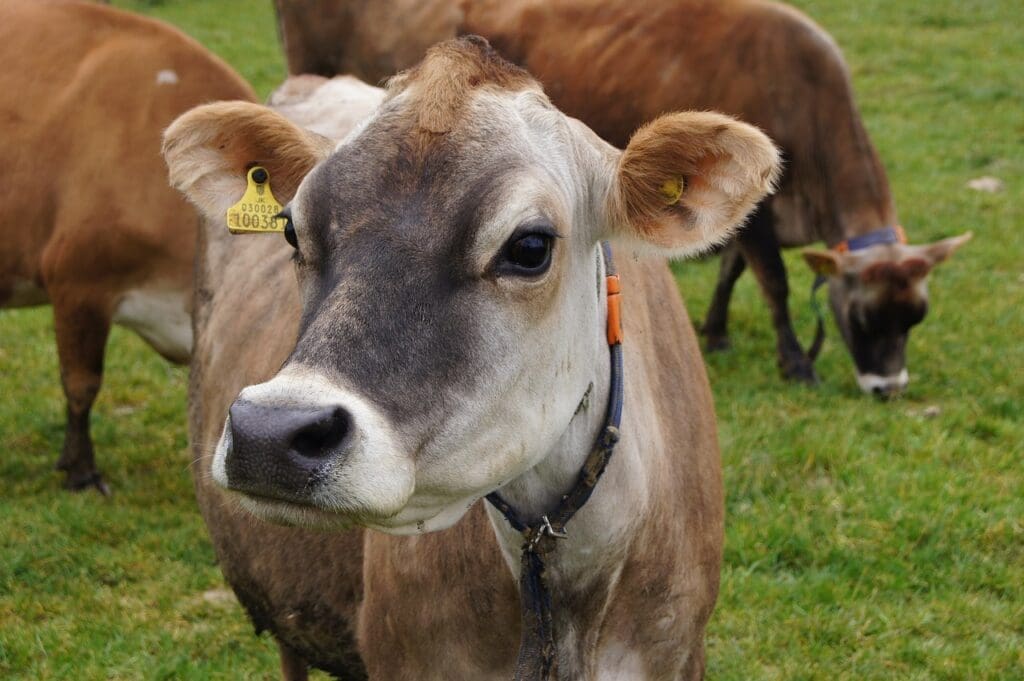
Key Takeaways
- Jersey cattle have a rich history and distribution, originating from Normandy and Brittany in France and migrating to various countries around the world.
- They are known for their distinctive characteristics, such as their light brown color, black nose, hard black feet, and relatively small size.
- Jersey cattle offer several comparative advantages, including lower production costs, higher fertility, longer herd tenure, and the ability to produce milk with greater nutritional value and efficiency.
Origin
The origin of Jersey cattle is uncertain, but is likely from the region of Normandy and Brittany in France. This area has been credited with providing the genetic heritage of Jersey cattle, which is thought to have originated from a cross-breeding of Bos brachyceros and Bos primigenius herds. Jersey cattle then spread across Europe and North Africa before eventually being introduced to various countries around the world, such as the UK, USA, Canada, South Africa, New Zealand, and Latin America.
Distribution
Today, Jersey cattle are found worldwide, with large populations in Australia, Canada, Denmark, New Zealand, South Africa, USA, and Zimbabwe. This global reach of the Jersey breed has been made possible through migration and cross-breeding of Jerseys over centuries. There has also been a strict ban on imports for the past 150 years, preserving the breed’s purity on Jersey Island.
In addition to their global reach, Jerseys have a local impact in many countries. They are highly sought after by dairy farmers for their high yield and efficiency in cheese and value-added products. Their hardy nature and good temperament make them well-suited to modern parlors. Jerseys have also been proven to have higher fertility and shorter calving intervals than other breeds. This makes them an excellent choice for farmers looking to maximize their returns.
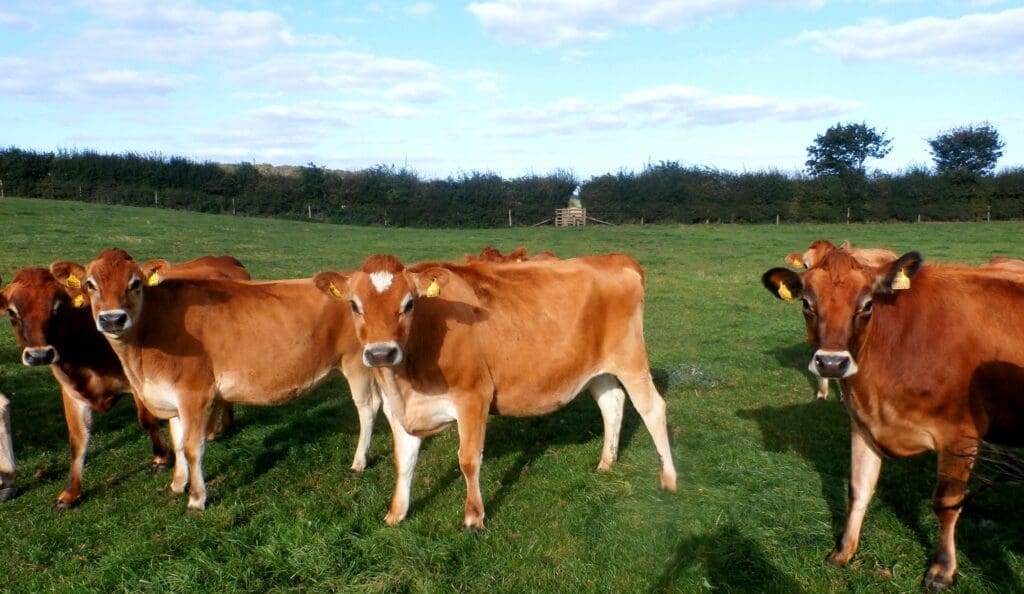
Characteristics
Known for their distinctive light brown coats and hard black feet, Jersey cattle are relatively small in size, typically weighing between 880 to 992 lbs (400-450 kilograms). They are known for their excellent fertility, shorter calving interval, and earlier maturity, making them ideal for breeding programs.
Jersey cows also have an incredibly resilient frame, which allows them to adapt to various climates and systems. They have a strong genetic diversity, which is essential for continued success in the global dairy industry. With a higher percentage of easy calvings and less susceptibility to mastitis compared to Holsteins, Jersey cattle are an optimal choice for those looking for a productive and healthy dairy cattle option. The breed is known for their good temperament and can easily be handled in modern parlors. All these factors make Jersey cattle a global dairy powerhouse.
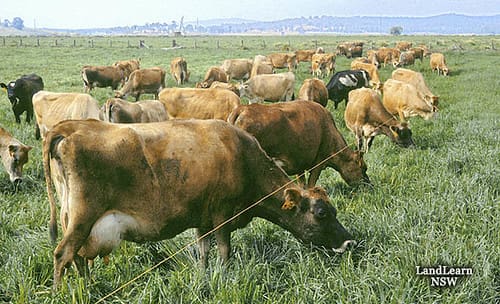
Advantages
Jersey cattle offer a variety of advantages over other major dairy breeds, such as lower production costs, greater fertility, and higher yields. Their hard black feet help prevent lameness, and their small size makes them easier to manage and maintain. Jerseys have shorter calving intervals and are known for their good temperament, making them ideal for modern parlors.
Their milk has higher nutritional value and yields compared to other breeds, and it commands a premium price in many markets. They also have a higher percentage of easy calvings and are less susceptible to mastitis. The Advantages of Jersey Cattle in Dairy Industry are clear and their Economic Benefits in Milk Production are undeniable.
Statistics
Jersey cattle are renowned for their high production efficiency, with studies indicating that they are more productive than other major dairy breeds. They produce milk components at a lower cost than other breeds, have little to no calving problems, higher fertility, shorter calving intervals, and earlier maturity. Jerseys also stay in the herd longer than other dairy breeds, have a higher percentage of easy calvings, and are less susceptible to mastitis. Jersey milk has greater nutritional value, higher yield, and is more efficient in cheese and value-added products, resulting in a higher market demand. Comparative analysis has shown that Jerseys are a powerhouse in the dairy industry.
What Makes Jersey Cattle Stand Out in the Dairy Farming Industry?
Jersey cattle are considered the cream of the crop cattle in the dairy farming industry due to their high butterfat content in their milk. They are known for their efficiency in converting feed to milk and their adaptability to various climates. Their gentle nature and high-quality milk make them a standout choice for dairy farmers.
Frequently Asked Questions
What Is the Life Expectancy of Jersey Cattle?
The life expectancy of Jersey cattle is affected by many factors, such as genetic predisposition, nutrition, and production goals. Generally, Jersey cattle can live up to 12-14 years in ideal conditions. However, with proper nutrition and care, some Jerseys may live to be 15-20 years old. In addition, Jerseys are known for their hardy constitution, which makes them more resistant to disease and more capable of withstanding difficult environmental conditions. With the right steps, Jersey cattle can be expected to live long and healthy lives.
Are There Any Special Care Requirements for Jersey Cattle?
Jersey cattle require special care to ensure they remain healthy and productive. Breeding strategies should be carefully planned to ensure genetic diversity is maintained. Pasture management is important to ensure the cows have access to nutritious feed. Jersey cows should be vaccinated on a regular basis and routine hoof trimming should be done to prevent lameness. Feed and water should be monitored regularly to prevent nutritional deficiencies. Proper handling is essential to ensure the animals do not become stressed or ill. With the right care, Jersey cows can be a valuable asset to any farm.
Are Jersey Cattle Used for Meat Production?
Yes, Jersey cattle are used for meat production. Their meat is considered to be of high quality, with good marbling, tenderness, and nutritional value. Jerseys are known for their flavor and texture, which makes them a popular choice for beef production. The breed is well-adapted for pasture-based production systems, and their smaller size and feed efficiency makes them attractive for smaller operations. Additionally, Jersey cattle are renowned for their easy-care nature, which makes them an ideal choice for those who are looking for a low-maintenance breed.
What Diseases Are Jersey Cattle Prone To?
Jersey cattle are largely known for being low-maintenance, but they are still vulnerable to certain diseases. To prevent issues, herd management is key. Common diseases include Bovine Respiratory Disease, which is caused by viruses and bacteria, and Bovine Tuberculosis, which is caused by a bacterial infection. Herd management practices such as biosecurity, vaccination, and proper nutrition can help prevent the spread of disease. Regular monitoring of the herd’s health is also important, as early detection can help minimize the spread of disease. With the right preventative measures, Jersey cattle can remain healthy and productive.
What Type of Feed Is Best for Jersey Cattle?
Jersey cattle are known for their hardy and efficient nature, and their diet plays a major role in their performance. While grass grazing is ideal for Jersey cattle, hay feeding is often necessary as a supplement. Hay feeding should be done in moderation and should provide a balanced diet of nutrients to the cattle. It is important to select hay that is free of mold and contamination, and that is high in nutritional value. The hay should be stored in a dry place away from pests and vermin. Jersey cattle are also able to graze on grass and other forage, which can provide them with essential vitamins and minerals. It is important to provide Jersey cattle with a balanced diet that is both nutritious and cost-effective.
Conclusion
Jersey cattle have proven to be a valuable asset to the dairy industry, with their hardiness and efficiency providing advantages over other breeds. Their ability to thrive in diverse climates and production systems has led to a steady increase in their global popularity. Such success has been bolstered by collaborations and alliances between organizations dedicated to the promotion of the breed. With their strong yet fine frames and good temperament, Jersey cattle are well-positioned to remain a mainstay in the dairy industry for years to come.
In our kitchen, we only use cultures from Cultures for Health.
Get yours here and start culturing today.
Popular Articles
Newsletter
Get signed up to get latest updates and new information from the Jersey Milk Cow!
This site uses Akismet to reduce spam. Learn how your comment data is processed.

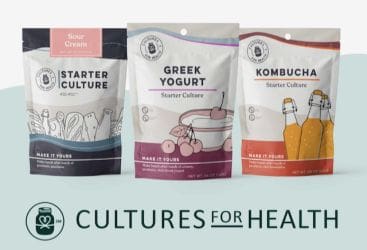

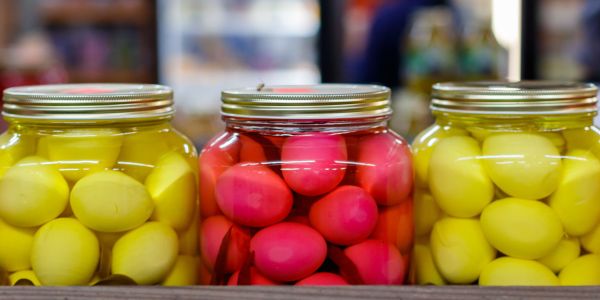
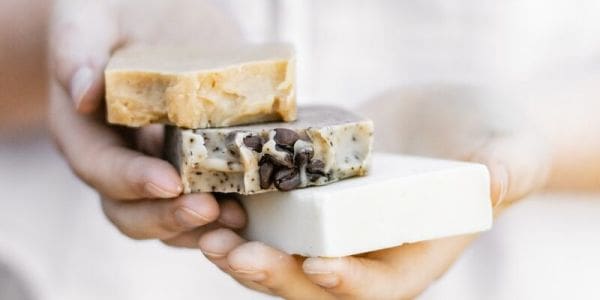
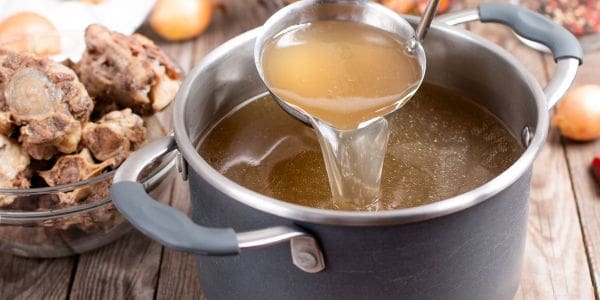

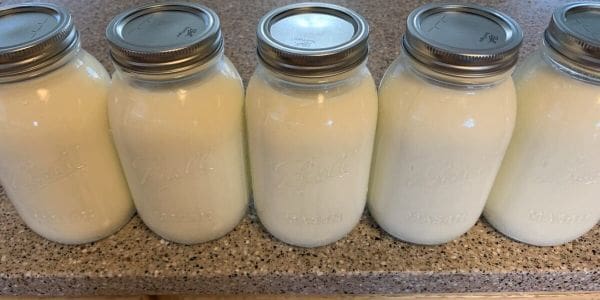
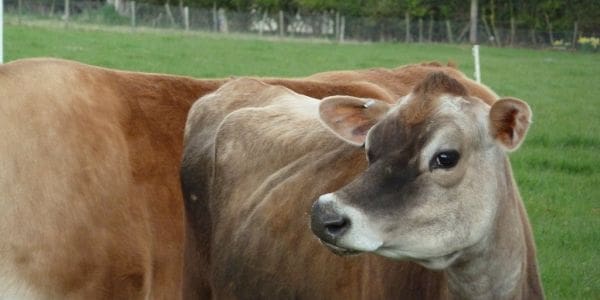
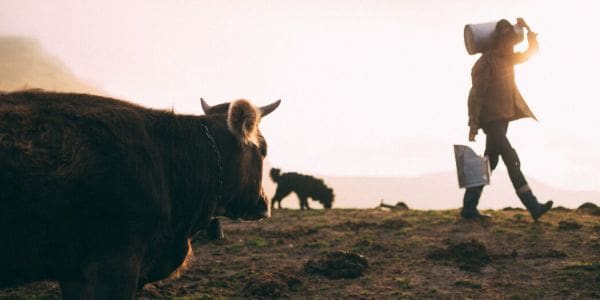

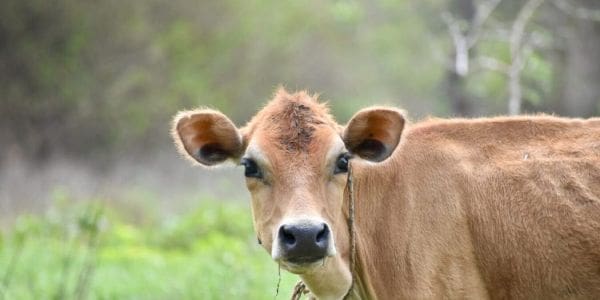
Leave a Reply